|
With the May long weekend ahead of us, and the weather warming up, many of us are starting to think about our gardens! I’m definitely spending more time outside enjoying the sunshine, pulling weeds and making impulse purchases anytime I pass an outdoor display of seedlings.
But you may not know that how we garden is deeply tied to colonialism — from collection and commodification of plants, the use of forced labour to expand empire, and the spread of seeds, species and knowledge.
In this week’s episode of Don’t Call Me Resilient, we dig into the complicated roots of the garden with researcher Jacqueline L. Scott, who studies Blackness outdoors, and Indigenous community activist Carolynne Crawley. We discuss the influences that have shaped our vision of an “ideal garden,” who gets to garden, as well as practical tips about how to plant with an eye to Indigenous knowledge.
With concerns about our climate crisis growing, one of the possible avenues for creating more sustainable cities may very well lie in our gardens; could we have an impact simply by thinking a little differently about the seeds we sow and the “weeds” we pull?
Also today:
All the best.
|

|
Ateqah Khaki
Visual Innovation + Audience Development, Don't Call Me Resilient
|
|
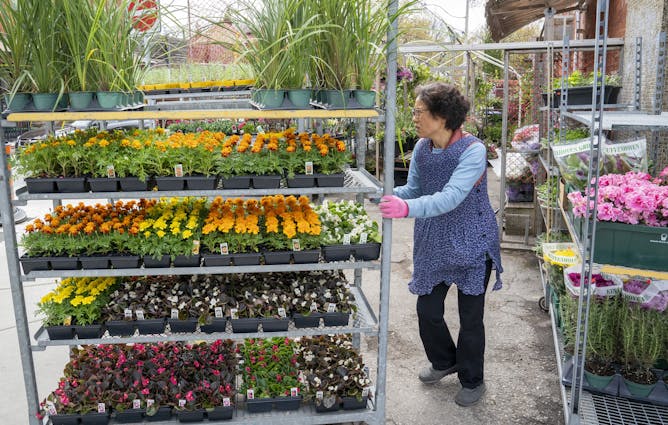
The practice of gardening is deeply tied to colonialism. Here a woman pushes a cart of flowers at her garden centre in Toronto, May 4, 2020.
THE CANADIAN PRESS/Frank Gunn
Vinita Srivastava, The Conversation; Ateqah Khaki, The Conversation
As we approach the start of gardening season, it’s a good time to ask some questions about what to plant and who gets to plant.
|
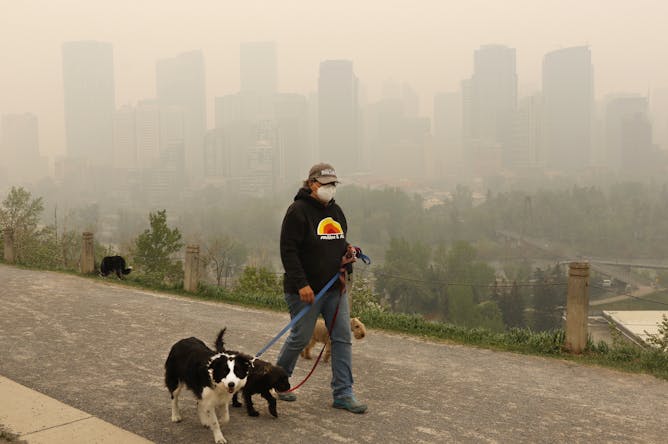
Wearing a protective mask, a dog walker ventures out as heavy smoke from northern Alberta forest fires blankets downtown Calgary on May 16, 2023.
THE CANADIAN PRESS/Larry MacDougal
Bruce Campbell, York University, Canada
Canadian financial institutions — banks, pension funds and private equity firms — fund the fossil fuel industry and are therefore helping fuel the climate crisis. Why won’t Ottawa hold them to account?
|
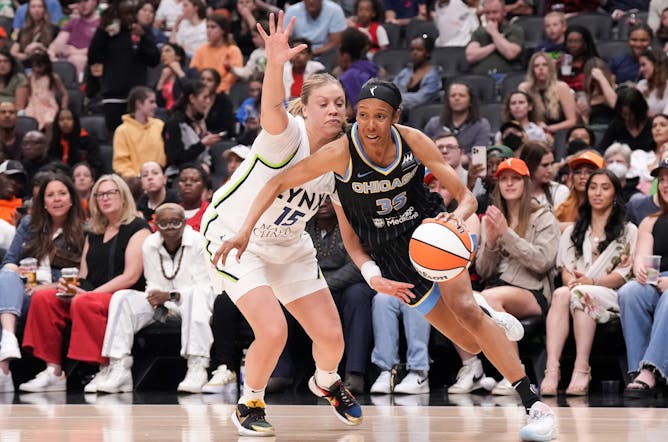
Chicago Sky’s Rebekah Gardner (right) drives at Minnesota Lynx’s Rachel Banham during second half WNBA preseason basketball action in Toronto on May 13, 2023.
THE CANADIAN PRESS/Chris Young
Treisha Hylton, Wilfrid Laurier University
The first WNBA game in Canada was more than just a game — it was about the future of women’s sports.
|
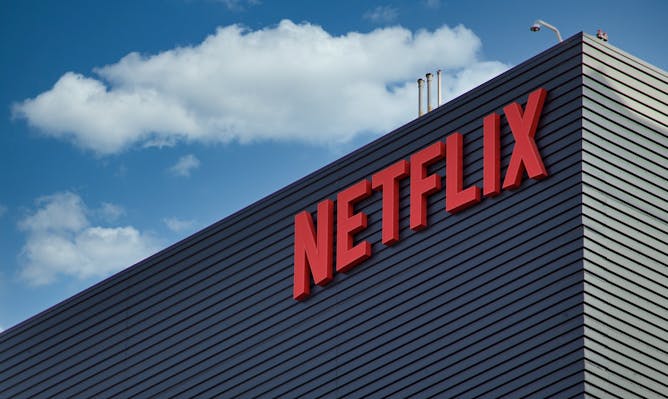
We need to understand two things about Netflix’s support for original film and TV creation: Are creators getting to tell their own stories? Are these stories being bought?
(Shutterstock)
Diane Burgess, University of British Columbia
Understanding how Netflix, to date, has fostered screen sector equity and capacity matters as the CRTC consults about Canadian and Indigenous content.
|
La Conversation Canada
|
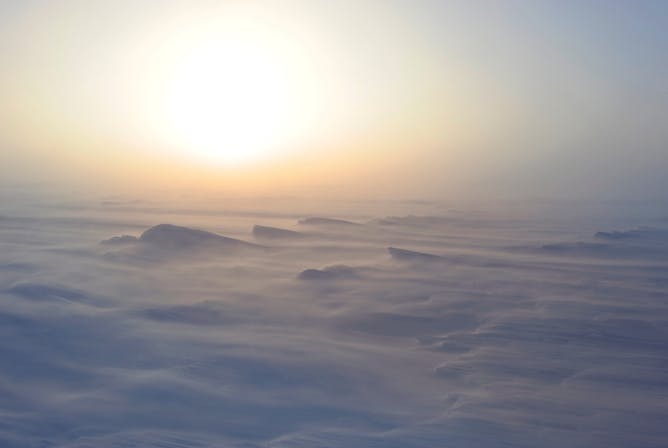
L’Arctique canadien subit de profondes transformations qui laissent des traces indélébiles sur le territoire.
(Doug Barber/ArcticNet)
Pascale Ropars, Université Laval
Grands utilisateurs du territoire, les habitants du Nord sont vulnérables aux aléas climatiques et à leurs conséquences. Il importe de développer avec eux des façons innovantes d’y faire face.
|
Podcasts
|
-
Joelle Gergis, Australian National University; Michael Green, The Conversation
Fear and Wonder is a new climate podcast, brought to you by The Conversation and the Climate Council. In this final episode, we discuss how poorer nations are at greater risk to a changing climate.
|
|
Education
|
-
Elisa M. Trucco, Florida International University; Julie Cristello, Florida International University
Adolescent brains are especially vulnerable to risk-taking and social pressure. But there are steps parents can take to steer their teen away from dangerous social media stunts.
|
|
Environment + Energy
|
-
Louise Gentle, Nottingham Trent University
The natural world is awash with liars – here are nature’s best.
|
|
Science + Tech
|
-
Hal Sosabowski, University of Brighton
Exploding cars are a staple feature of the Fast & Furious films. Entertaining, yes. But realistic - not so much.
|
|
|
|
| |
| |
| |

|
| |
| |
| |
| |
| |
| |
|
|